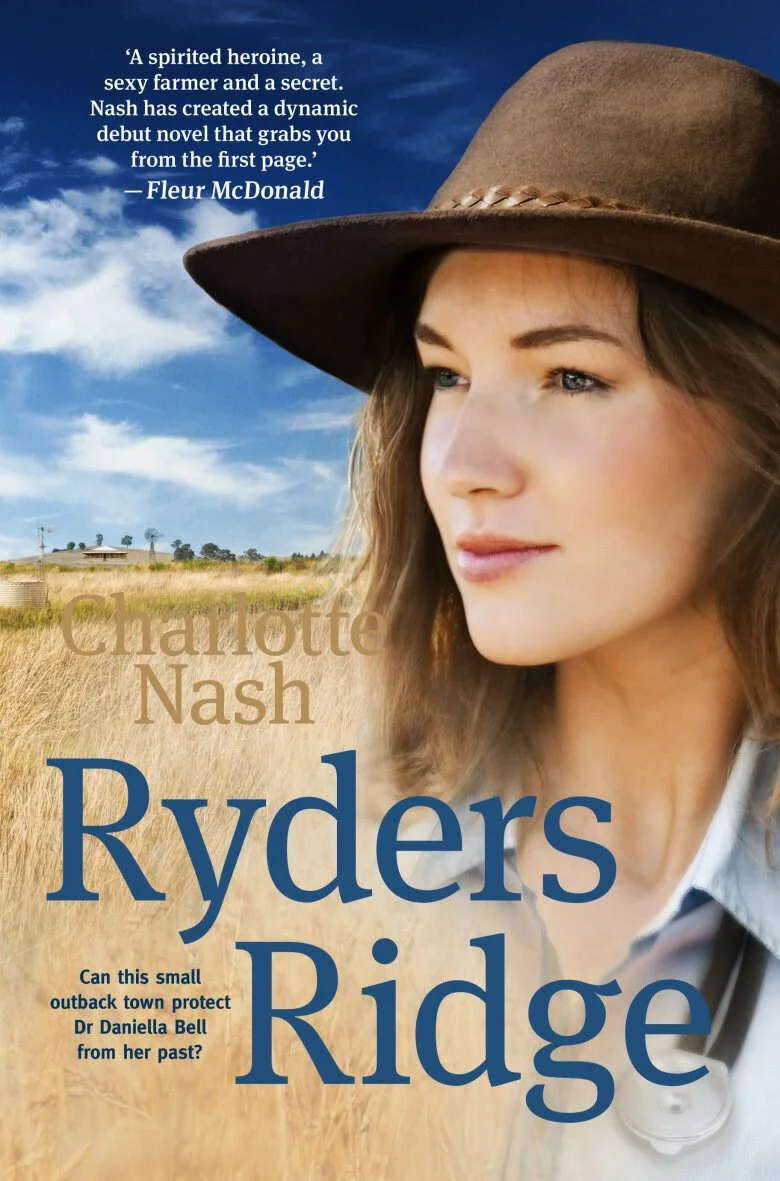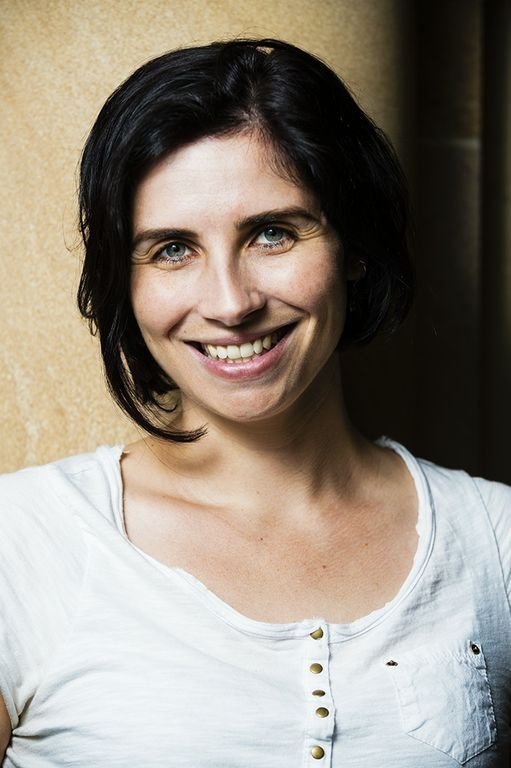This Week's Author Interview: Charlotte Nash
Today I welcome Charlotte Nash to the blog.
Charlotte's debut novel Ryder's Ridge is just about to be released.
Set in the Australian outback Ryder's Ridge is the story of Dr Daniella Bell who escapes to the small north-west Queensland cattle town of Ryder's Ridge after a tragic incident in the city hospital where she worked. Caring and dedicated, Daniella quickly wins the trust of her patients, and the attention of handsome station heir, Mark Walker. As their relationship grows, Daniella begins to think she could make a new life for herself in Ryders. But country towns have their own problems.Under the big outback sky, Daniella discovers that the local rumour mill can threaten both friendships and careers, and that like the city, Ryder's Ridge also has secrets. Mark, too, is a complication - as good as they are together, how can a doctor maintain a practice and live on a cattle station.Just as Daniella considers running away for a second time, a terrible accident forces her to face the secret she left behind in Brisbane, and risk losing Mark forever.
Thanks for visiting Charlotte.
*
1.What activities (other than writing) get your creative juices flowing?Running. I used to do a lot of my creative thinking on the treadmill. Other than that, it's group-effect situations – talking ideas with other enthusiasts.
- What sort of writing routine do you have – disciplined or undisciplined, regular or erratic, focused or easily distracted?
I'm disciplined, but I don't believe in the practicality of writing every day. Sometimes it just can't happen and there's no point being anxious about breaking some idiom. I tend to do projects in planned chunks with clear, self-imposed deadlines. I almost always meet them (especially the important ones).In hand with that, I'm usually focused. My existence has been highly itinerant for the last two years, so I've developed a work-anywhere system (in cafes, in airports, on planes, in libraries, in friends' houses) which gets around distraction. I've actually come to enjoy noise and activity around me to work in. For example, I did the entire structural edit of Ryders Ridge while on a trip home to Brisbane, in libraries and on a friend's dining table. The copy edit was done on another trip, over Christmas, at my mum's table.
- Do you ever suffer from writer’s block and if so what do you do about it?
I don't believe in writer's block. (I picked up this attitude from both Kim Wilkins and Stephen King very early on, and I live by it.) Like in any profession, there are days when you don't feel like it or when you're just not on the game, but words only get written when you show up and start putting them down. I simply make myself, sometimes, using self-bribing techniques if necessary (like this). If I truly don't know what to write, it's a failure of planning, not of the muse. So then, I go back to the plan. And even bad words are clay on the wheel, ready to be shaped.And just the same as in any profession, you can get to points when you're burned out or fed-up. But that's not block ... it's time for a holiday. J
- Which aspects of the writing life do you most love?
I love creating stories and working on them until they sing (to me, at least). Editing has grown on me – I used to hate it, but now its essential nature is so plain to me and I love how it can reveal a story like polishing a gem. I also love teaching – my classes at UQ give me immense enjoyment.
- Which aspects do least love (or detest!)?
I do miss hands-on, technical work. That's no fault of writing in itself, but writing is an oft-solitary, theoretical pursuit, and there's a part of me that hankers for dirty hands and working with others. I think that's why I write a lot about things I've done... living vicariously through memory.
- What books and writers have most influenced your own writing?
Jilly Cooper (especially Riders), Neal Stephenson, Michael Crichton, J R Ward ... a strange list, but I admire each of them in their own way and have learned a lot about the craft from their work.
- Can you describe for us your writing process, from getting the original idea to completed manuscript?
From an idea, I start working with structure, usually on index cards. I brainstorm the kinds of scenes I'll need, and start putting them in approximate places in the story. I'll do preliminary research, too. When I have a clearer sense of the 'arc', and who the characters are, and major milestones in the story (including a good collection of scenes that will occur through the middle and end of the story), I focus on the beginning and map out the chapters in scenes. When I have a few chapters planned, I start writing. I then go backward and forward between the plan and writing the scenes, doing more research on the fly. I plan in detail about six scenes in advance, but the fine detail comes out during the writing as ideas, images and links occur as the text goes down. That's it – just repeat until 'the end'. I usually set a completion deadline around other responsibilities.Once the first draft is done, I rest it. Then it's time to have someone else read, offer feedback, and then I begin editing.
- Describe your path to publication.
I'd been writing seriously since 2007, both short stories and novel manuscripts. In 2009, I applied for the QWC/Hachette Manuscript Development Program with a science fiction manuscript. It was long-listed, and the next year, after heavy revisions, I applied again and was selected. At the program, I met Bernadette Foley from Hachette, and though the sci-fi manuscript (and later, another historical fantasy manuscript) ultimately weren't accepted, I kept in touch. Then when I had an early draft of Ryders Ridge (my fourth full-length novel manuscript), I queried and they were interested. The manuscript wasn't ready, but Bernadette gave me some guidance that allowed me to submit again, again after heavy revisions. It was at this point an offer was made.
- What advice would you give to writers who are working towards publication?
Like any apprenticeship, persistence and learning are key. Talent is cheap and counts for little. Seek out critique; there's no other way to learn how to produce better work. It will hurt at first, but you'll learn to love it when you see your work improve. Find mentors where you can. Listen to what they say. Give back to other writers less experienced than you. And above all, stay sane. You can connect with Charlotte on:Facebook www.facebook.com/AuthorCharlotteNashWebsite: http://charlottenash.net/Twitter: @CharlotteNash79

